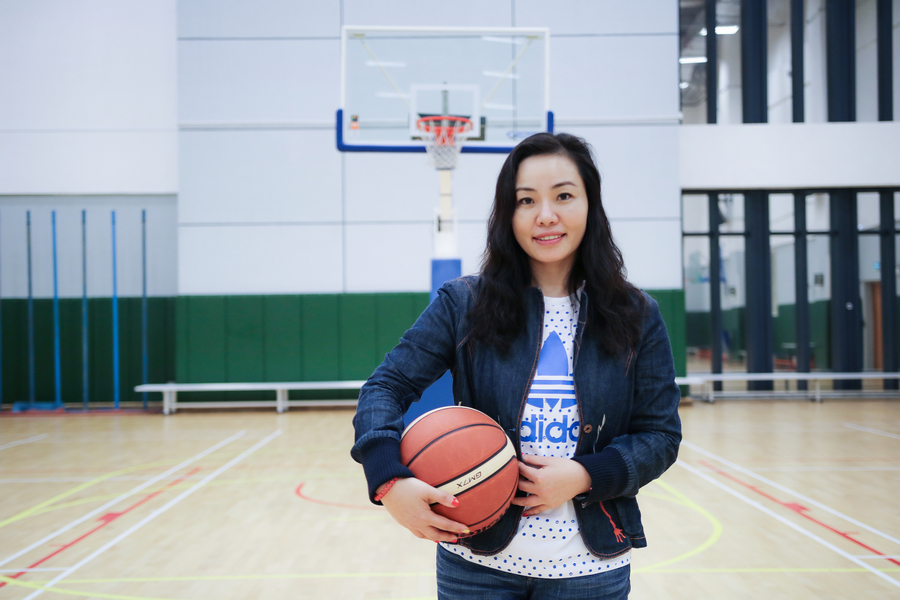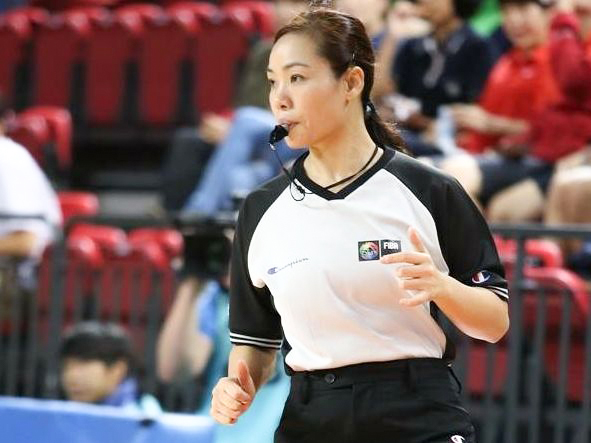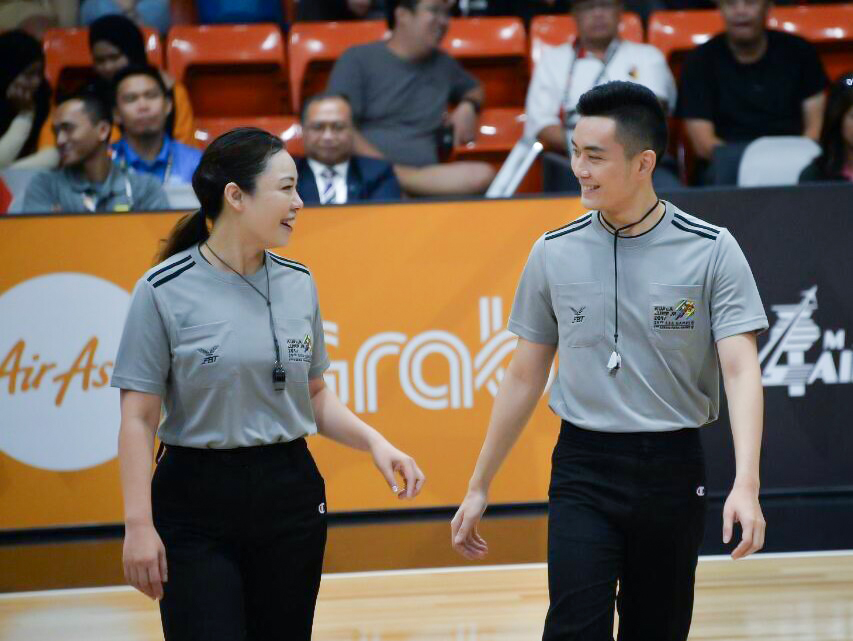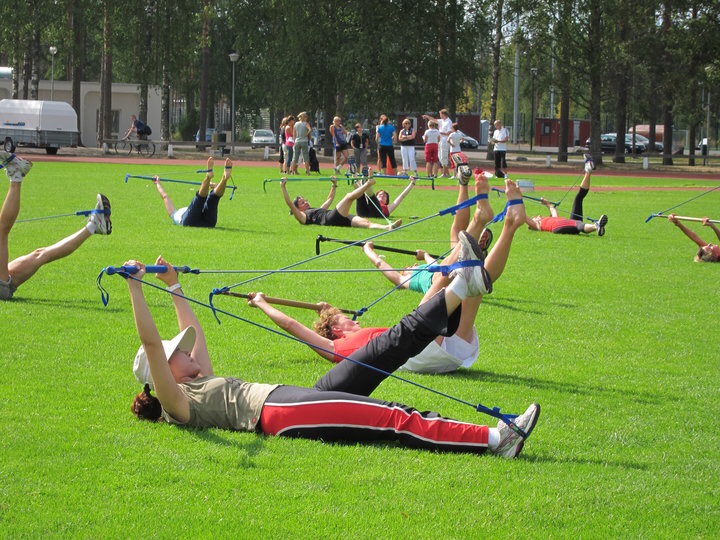The Female ‘Judge’ on the Basketball Court
Since 1998, Lei has served as a referee at more than 1,000 local and international basketball games. During the peak season, she sometimes had to referee as many as eight games in a single day. Today, the most exciting part of a game for her is not how beautifully a player makes a dunk shot, but how fast and fairly a referee can make decisions. Recalling how she grew from a rookie to an experienced referee whose orders the players are willing to obey, she says the secret is continuous learning and self-reflection, adding that hard work is extremely important, especially for female referees.
Every team wants to win. But in every game there can be only one winner. Given those odds, sometimes the referee becomes the punching bag. There is a concept in sport psychology called ‘Attribution Theory’, which means people tend to attribute outcome X to causal factor Y. And referees, especially female, are often considered fair game for this purpose. And it is often not acceptable if a female referee decides not to call in two situations. When this happens, Lei reminds herself to stay calm and talk to the players while making allowances for the losing side’s need to vent their frustration.
The Advantages of Being a Female Referee
Lei has earned international recognition as a basketball referee. If you are a basketball fan, you may have even seen her agile figure on TV at major basketball games, such as the EuroBasket Women, the Asian Games, the World Cup, and Olympic Test Event. According to Lei, it is very important for referees to emanate an aura of confidence and authority, especially when they are dealing with male players who tower over them. Appearing intimidated or uncertain is a definite no-no. But how does a gentle and refined woman like Lei do that?
‘Basketball is a very good sport. It can help improve various skills. It takes brains, team work, endurance, moral discipline, and mood management skills. Good players can improve all these skills,’ she says. ‘When someone is being unreasonable, I will try to approach him gently. Usually, even a fire-breathing man would calm down in front of a gentle woman. This is perhaps one of the advantages of being a female referee.’
‘When I feel tension rising or sense that someone is going to say or do something that might provoke the other side, I will intervene preemptively, because I don’t like the game to be interrupted by a tussle. I would rather they vent their anger at me. That’s why you rarely see players fighting in my games,’ she says.
A Test of Brains and Brawn
Lei enjoys being a referee for international events, because she can meet referees from different countries. But she says it is not easy to be a competent basketball referee, describing it as a test of brains and brawn. To make matters worse, the rules are adjusted every two years and heavily revised every four years. So she has to keep abreast of the changes.
It is not easy to be a referee. It is even more difficult to juggle the busy schedules of a professor and a referee, especially when the two roles are equally important. She recalls that once she needed to officiate at a game right after class, but in her hurry she forgot to bring her referee’s shoes. She explains, ‘There are rules for what referees should wear in a game. The three referees on the court must dress in the same style and same colour, usually black shoes and black socks. That’s because the court is full of bright colours. Also, it helps to prevent us from wearing the same colour as either team, and makes it easier for me to know when my partners turn to focus on their areas.’ According to Lei, the job of a referee has its hidden woes. ‘For instance, sometimes, your muscles may not be strong enough, and that could cause injuries to your tendons when you make an abrupt stop from running—sometimes the shoes would even fly off,’ she says.
‘Keep your mouth shut and keep your legs moving.’
Is physical fitness something one is born with or is it something a person can improve through regular exercise? For Lei, the former seems accurate because when it comes to sports, she is a natural. But even with this natural gift, she makes a habit of doing strength training before an event. ‘You can do the math, it is not unusual for me to run more than 4,000 metres when officiating for a high-level game. And I’ve tried officiating for eight local youth games in a single day years ago. Normally I would start the training two to three weeks before a local event. For invitational tournaments, I would start the training at least one month in advance. For international ones, I would start three months in advance. ’
During her strength training, Lei wears a heart rate monitor to collect data. She has an amazing, explosive strength. When she sprints, she can reach speeds of 22km an hour. During her spare time, she likes to go jogging in Small Taipa Hill. She is also a healthy eater. She normally eats a simple meal, and consumes low-sugar fruits and sugar-free beverages. Her advice for those who want to lose weight the heathy way? ‘Keep your mouth shut and keep your legs moving,’ she says half-jokingly. ‘Oh, and go easy on sugar.’




